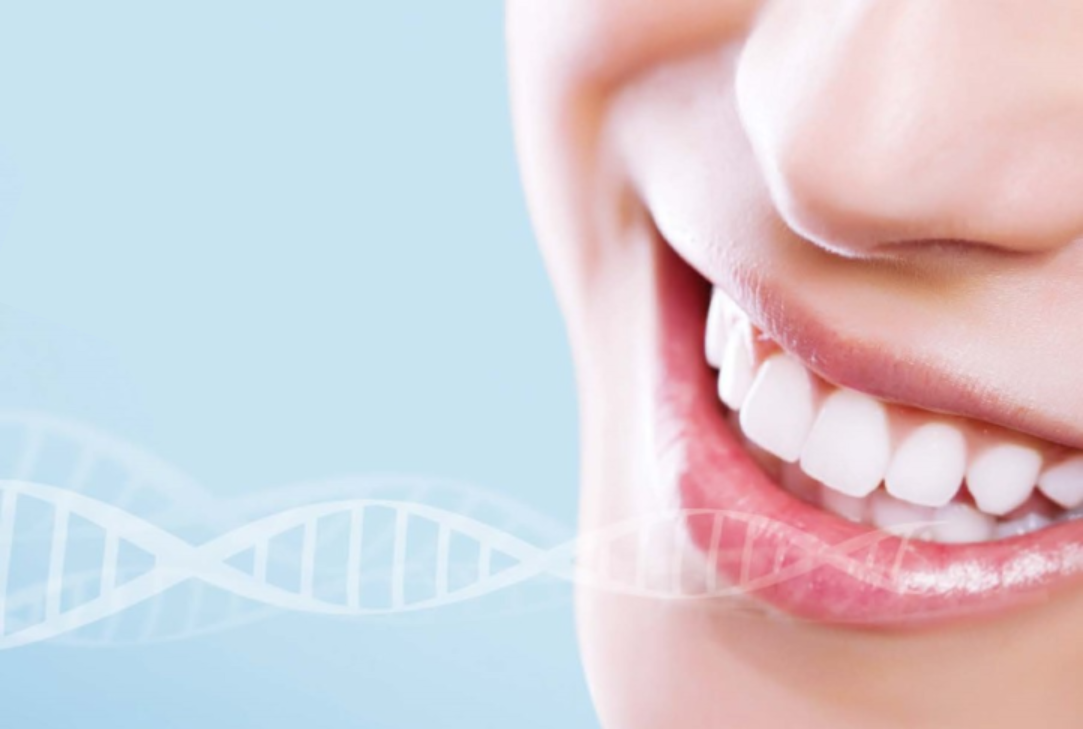
13 Jun Genetics And Dental Health: What You Can And Can’t Control
Sparkling smiles and fresh breath – good oral health is a confidence booster for everyone. Sadly, over one-fifth of American adults skip dental care because they can’t afford it.
But even if you see your dentist regularly, cavities, gum disease, or other dental issues can still creep in. This may leave you wondering if something else is contributing to your woes.
A beautiful, healthy smile goes beyond brushing and flossing. Genetics is one of the surprising factors that can impact your dental health. Read on to learn about the connection between your genes and oral health.
How Genetics Affects Your Oral Health
To understand how genes influence your dental health, let’s explore how they affect different aspects of your teeth.
Teeth Development
Your genes play a key role in how your teeth develop. They determine the size, shape, and number of your teeth, as well as when they erupt. For example, if your parents have big teeth, you might too. Similarly, if they’re missing some teeth, you could inherit that trait as well.
The timing of tooth eruption is also influenced by your genes. Some people get their teeth earlier or later than others, and this can be partly due to genetics. Additionally, genes can affect the order in which your teeth come in, such as whether your front teeth or molars appear first.
Moreover, your genes can impact your gum health, which is essential for overall dental wellness. Strong and healthy gums provide support for your teeth and help prevent issues like gum disease. Genetics can affect how thick and strong your gums are, which can make some people more likely to have gum issues.
Understanding how genetics influence tooth development and gum health can help you take better care of your oral health. This allows you to maintain healthy teeth and gums regardless of your genetic predispositions.
Enamel Strength
Your genes can also influence the strength and composition of your tooth enamel. This is the hard outer layer that protects your teeth from decay. Some people have strong enamel that resists cavities, while others have weak enamel that is easily damaged by erosion and decay.
If your enamel is strong and durable, you may have a lower risk of developing tooth cavities. However, if your enamel is weaker or thinner due to genetic factors, you may face a higher cavity risk. This means it’s important to take extra care to keep your teeth clean and protect your enamel.
To maintain clean teeth and reduce cavity risk, brush and floss regularly using fluoride toothpaste. Fluoride helps strengthen enamel and protect against acid attacks from bacteria in your mouth. Choosing certain safe foods can also help preserve enamel and prevent cavities.
Regular dental check-ups are also crucial for monitoring your oral health and catching any potential issues early on. Our dentists can provide personalized advice and treatments to help keep your enamel strong and your teeth clean. This will help you maintain a healthy smile for years to come.
Susceptibility to Gum Disease
One of the main culprits in gum disease is the bacteria that live in your mouth, including tongue bacteria. When these bacteria aren’t properly managed, they can cause your gums to get inflamed and infected. This is where your genetic makeup comes into play.
If your body easily gets inflamed, you may have worse gum issues even with just a little bacteria.
Embracing Your Genetics: What You Can Do to Achieve Optimal Oral Health
You can’t change your genes, but it’s important to know if your family history puts you at risk for dental problems. This information can help you be extra proactive with your dental care.
Here’s what you can do to maintain a healthy smile even if your family tree puts you at a higher risk of catching dental problems:
Brush and Floss Like a Boss
This might seem obvious, but good brushing habits are your first line of defense. Aim to brush at least twice a day, focusing on all surfaces of your teeth, especially the tongue and gum line, where plaque loves to hide. Don’t brush too hard, as this can cause many problems.
Don’t forget to floss. Flossing daily reaches those tight spaces between your teeth that your toothbrush can’t. This helps remove sneaky food particles and plaque that can contribute to cavities and gum problems.
Get Regular Dental Cleanings
While daily brushing and flossing are crucial to keep your mouth clean, they don’t remove all food particles. Occasional deep cleanings are necessary to eliminate the food that remains behind over time, forming plaque and tartar.
At our office, a dentist will clean your teeth, remove plaque and tartar, check for problems, and make your teeth shiny and clean. Consider these visits as spa days for your teeth.
Prioritize Your Gum Health
Gum health matters. Healthy gums are the foundation for a healthy smile. If you notice any redness, swelling, or bleeding in your gums, be sure to talk to your dentist. Early intervention for gum disease is key to keeping your smile healthy and strong.
Eat Right
What you eat and drink plays a big role in your oral health. Limit sugary drinks and foods that can feed harmful bacteria in your mouth. Focus on healthy choices like fruits, veggies, and whole grains to keep your smile strong and healthy.
Contact McIlwain Dental Specialists to Address Your Unique Dental Needs
Discovering you have a higher risk of developing dental problems due to your family history can be disheartening. But it doesn’t mean that good oral health is out of reach. By being proactive about dental care matters, you can keep a healthy mouth and a beautiful smile.
Looking for a professional dental practice in Tampa or Wesley Chapel, FL areas? Look no further than McIlwain Dental Specialists. We offer general, pediatric, orthodontic, and aesthetic dentistry services to meet the needs of your entire family.
Don’t hesitate to get in touch to book your dental consultation and discuss your treatment options.


